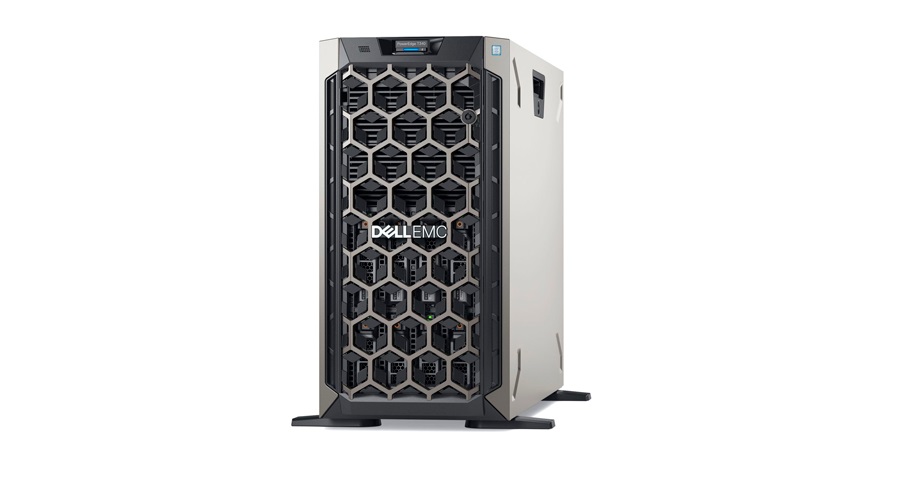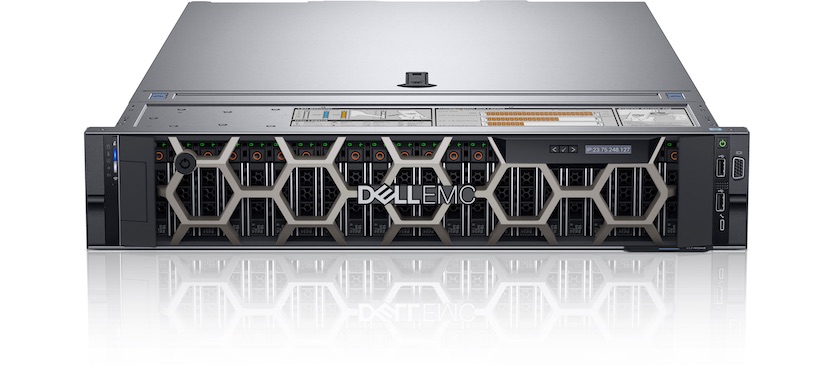The Best DELL Server For Home Lab
Choosing the best Dell server for a home lab involves considering various factors such as your budget, specific requirements, and future scalability.
3 Best DELL Servers for Home Labs
These three Dell servers cover a range of form factors and performance levels. Choose the one that best aligns with your specific home lab requirements, keeping in mind factors such as scalability, storage needs, and available space.
Dell PowerEdge T340

The DELL PowerEdge T340 is a tower server suitable for small businesses and home lab environments. It offers a balance between performance and scalability, making it versatile for various workloads.
Specifications:
-
Processor: Intel Xeon E-2100 or E-2200 series
-
Memory: Up to 64GB DDR4 ECC UDIMM
-
Storage: Supports up to 8 x 3.5" SATA or 2.5" SAS/SATA drives
-
RAID: PERC H330, H730p, or HBA330
-
Networking: Dual-port 1GbE NIC
-
Expansion Slots: Up to 6 PCIe slots
-
Management: iDRAC9 with Lifecycle Controller
Dell PowerEdge R640

The DELL PowerEdge R640 is a 1U rack server designed for performance and efficiency. It's suitable for virtualization, high-performance computing, and demanding workloads in a compact form factor.
Specifications:
-
Processor: Dual Intel Xeon Scalable processors
-
Memory: Up to 3TB DDR4 RDIMM or LRDIMM
-
Storage: Supports up to 10 x 2.5" SAS/SATA/NVMe drives
-
RAID: PERC H330, H730p, or HBA330
-
Networking: Dual-port 1GbE or 10GbE NIC options
-
Expansion Slots: Up to 3 PCIe slots
-
Management: iDRAC9 with Lifecycle Controller
Dell PowerEdge R740

The DELL PowerEdge R740 is a 2U rack server known for its versatility and performance. It's suitable for various demanding workloads, including virtualization, databases, and collaboration.
Specifications:
-
Processor: Dual Intel Xeon Scalable processors
-
Memory: Up to 3TB DDR4 RDIMM or LRDIMM
-
Storage: Supports up to 16 x 2.5" or 8 x 3.5" SAS/SATA/NVMe drives
-
RAID: PERC H330, H730p, or HBA330
-
Networking: Dual-port 1GbE or 10GbE NIC options
-
Expansion Slots: Up to 6 PCIe slots
-
Management: iDRAC9 with Lifecycle Controller
Step-by-Step Guide
Here's a step-by-step guide to help you make an informed decision:
-
Define Your Purpose:
-
Determine the primary purpose of your home lab. Are you setting up a virtualization environment, testing applications, or running a small-scale production system?
-
Identify the type of workloads you'll be running, such as virtual machines, databases, or file storage.
-
Budget Consideration:
-
Set a budget for your home lab. Dell offers a range of servers with different price points, so knowing your budget will help narrow down your options.
-
Performance Requirements:
-
Assess the performance requirements based on your intended use. Consider factors like CPU power, RAM capacity, and storage needs.
-
Virtualization enthusiasts may prioritize multi-core processors and ample RAM for running multiple virtual machines simultaneously.
-
Form Factor:
-
Decide on the server form factor based on available space and your preferences. Dell offers tower, rack, and blade servers. Towers are more compact, while rack servers are suitable for those with limited space.
-
Scalability:
-
Consider future scalability needs. Choose a server that allows for easy upgrades, such as additional RAM slots, multiple drive bays, or expansion card slots.
-
Power Efficiency:
-
Evaluate the power efficiency of the server. Home labs typically run 24/7, so a server with energy-efficient components can save on electricity costs over time.
-
Networking Capabilities:
-
Assess networking features. If you plan to simulate a network environment, look for servers with multiple Gigabit or 10 Gigabit Ethernet ports.
-
Storage Options:
-
Determine your storage requirements. Servers may come with different storage configurations, including SATA or SAS hard drives and SSDs. Consider the total storage capacity and the ability to support RAID configurations.
-
Manageability and Remote Access:
-
Consider servers with remote management capabilities, such as Dell's iDRAC (Integrated Dell Remote Access Controller). This feature allows you to manage the server remotely, monitor hardware health, and perform tasks even if the server is offline.
-
Check Compatibility:
-
Ensure that the server hardware is compatible with the operating systems and virtualization platforms you plan to use in your home lab.
-
Warranty and Support:
-
Check the warranty and support options available. Dell typically offers various warranty plans, including on-site support, which can be crucial for minimizing downtime.
-
Read Reviews and Seek Recommendations:
-
Look for reviews of the specific server model you're considering. Online forums and communities can provide valuable insights and recommendations from users with similar use cases.
By following these steps, you can narrow down your options and choose the best Dell server for your home lab based on your specific needs and preferences.